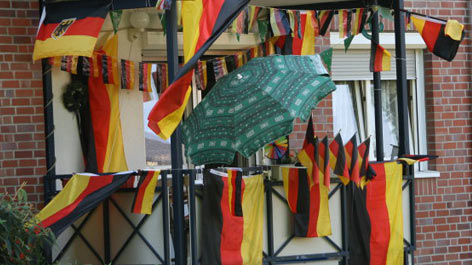The Songs of the Germans: What is really behind the SPK's initiative?
News from 07/28/2016
Replace the “Song of the Germans”? Do away with the national anthem? Just sweep unity and justice and freedom under the carpet of history? No, that is not what the Foundation is trying to do, even if some of the media have given the story that slant.

First, a little back-story: 2016 is the 175th anniversary of the “Song of the Germans,” written by Hoffmann von Fallersleben and preserved in the Staatsbibliothek zu Berlin (Berlin State Library). The current issue of the SPK magazine took a fresh look at this German national treasure and asked some of today's poets what an anthem for Germany might sound like in the 21st century. In the course of planning this issue – on the subject of “Heimat?” – the editors had stumbled upon the question of whether the words that we sing still match our sentiments. How do we feel about the “German fatherland”? And what does “the pledge of happiness” actually mean? Are we really “brotherly with heart and hand”? This led to an interesting idea: if the “Song of the Germans” had not yet been composed and we wanted to write it, how would it go?
Marica Bodrožić, Tanja Dückers, and Jan Koneffke – three poets and writers with a connection to the topic of “Heimat?” – responded to our call for suggestions and wrote alternative national anthems for Germany. The results are wonderfully different from each other: a song in praise of a multitude of voices – the cultural wealth of our country – stands alongside a call for thinking free of fear, and a critical appraisal of the “beer and circuses fatherland.” So do we now want to replace the national anthem? Of course not. “Unity and justice and freedom” are sound values – at this of all times! We do, however, want everyone who sings these words in the future to reflect on their significance, because underlying them is the question of how we want to live in our society.
By Kristina Heizmann

